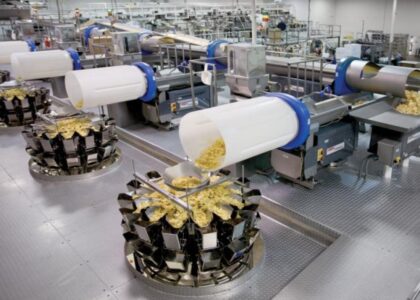The global Valve Remote Control Systems (VRCS) Market is on a trajectory of rapid expansion, projected to grow from USD 8.88 billion in 2025 to USD 19.15 billion by 2035, registering a CAGR of 6.7%, according to a new industry report. This significant growth reflects the accelerated adoption of automated and intelligent valve control technologies across key sectors including shipbuilding, oil & gas, water treatment, and chemical industries.
Increased focus on operational efficiency, workplace safety, and digital control capabilities has drastically elevated the demand for smart valve control solutions. As industrial automation scales up, VRCS has emerged as a strategic priority for industries looking to optimize flow management, reduce manual intervention, and enhance real-time monitoring capabilities.
Asia-Pacific countries, particularly China, South Korea, and Japan, are leading this surge, owing to a spike in commercial shipbuilding and naval vessel orders. These markets are adopting advanced VRCS technologies to modernize fleets, meet international maritime regulations, and improve shipboard system efficiency.
In parallel, oil & gas offshore exploration continues to expand, with companies investing in electro-hydraulic and pneumatic VRCS solutions to improve operational dependability under extreme marine and subsea conditions. This has created strong demand for systems that offer seamless integration with digital platforms and robust performance in remote environments.
Gain Valuable Insights from Industry Experts to Shape Your Growth Strategies. Access our Sample Report Now: https://www.futuremarketinsights.com/reports/sample/rep-gb-17519
Report Coverage & Deliverables
The report offers in-depth coverage of the VRCS market, including market sizing, revenue forecasts, regional insights, competitive landscape, growth drivers, key challenges, and future investment strategies. Deliverables include market segmentation by product type, industry application, control technology, and geography, along with key player strategies and technological innovation trends.
Key Factors Shaping Market Dynamics
Rising industrial automation, regulatory pressures for environmental compliance, increasing shipbuilding activities, and oil & gas infrastructure expansion are key factors fueling the global VRCS market momentum.
Accelerate Digital & Smart Valve Integration
Smart VRCS with IoT and AI capabilities are reshaping how industries control fluid flow and pressure. These systems allow for predictive maintenance, remote diagnostics, and seamless integration into centralized control rooms.
Companies are rapidly adopting digital twins and cloud-based control platforms to enhance visibility and decision-making. The shift toward Industry 4.0 is prompting a widespread overhaul of traditional valve control systems, with digital transformation at the center of this evolution.
Align with Sustainability & Regulatory Trends
Environmental compliance has become a strategic imperative. VRCS plays a critical role in reducing emissions, controlling leaks, and ensuring safe chemical flow, particularly in the water treatment and chemical processing sectors.
With global environmental norms tightening, manufacturers are compelled to adopt systems that support greener operations. VRCS with low-emission and energy-efficient functionalities are gaining traction as part of broader ESG goals.
Strengthen Supply Chain & Strategic Partnerships
Supply chain disruptions and raw material inflation have impacted the timely delivery of VRCS solutions. Market leaders are now investing in localized production, vertical integration, and digital supply networks to mitigate these risks.
Strategic collaborations with shipbuilders, oil companies, and industrial automation vendors are accelerating product deployment and enabling faster innovation cycles. These partnerships are key to unlocking global market potential.
“Automation, sustainability, and offshore energy trends are turning VRCS into a core asset for modern industrial operations.”
Key Takeaways
The Valve Remote Control Systems market is undergoing transformative growth, driven by smart technologies, offshore exploration, and maritime innovation. As sustainability and digitalization converge, the market is expected to nearly double in value by 2035.
Browse Full Report Here: https://www.futuremarketinsights.com/reports/valve-remote-control-systems-market
Key Priorities of Stakeholders
End users are prioritizing systems that offer not only real-time control but also remote access, safety compliance, and energy efficiency. Procurement decisions are increasingly being influenced by lifecycle cost savings and performance analytics.
Manufacturers, on the other hand, are focusing on modular product designs, scalable integration options, and software-driven upgrades to meet the evolving demands of diverse industries such as oil & gas, marine, and wastewater management.
Adoption of Smart Technologies
The integration of AI, machine learning, and data analytics with VRCS is creating intelligent valve ecosystems capable of self-regulation and performance optimization. These advancements reduce downtime and improve productivity across critical infrastructure.
Augmented reality and digital twin technologies are being tested for training, remote commissioning, and maintenance, especially in hazardous environments like offshore rigs and chemical plants, further enhancing safety and efficiency.
Valve Remote Control Systems Market Key Players
- Emerson Electric Co. – Leading in automated control technologies with a broad product portfolio for industrial and marine VRCS.
- Flowserve Corporation – Renowned for custom-engineered VRCS solutions catering to oil & gas and chemical sectors.
- Rotork plc – Specializes in electric and pneumatic actuators integrated with smart control platforms.
- ABB Ltd. – Offers advanced process automation and control systems including VRCS for high-demand applications.
- Honeywell International Inc. – Delivers IIoT-enabled VRCS for intelligent flow management and asset performance monitoring.
- Schlumberger Limited – Focuses on oilfield solutions with robust electro-hydraulic VRCS for offshore applications.
Future Investment Priorities
Investors are expected to allocate capital towards R&D in AI-integrated valve control, modular VRCS solutions, and software platforms for centralized command centers. These investments will be crucial for capturing next-gen industrial control opportunities.
Greenfield projects in the shipbuilding and desalination sectors will also attract funding, especially in regions transitioning to automated infrastructure and stricter environmental standards.
Regional Analysis
- North America: Driven by oil & gas infrastructure and digital factory investments.
- Latin America: Moderate growth with rising water treatment and refinery projects.
- Western Europe: Mature market focused on sustainability and smart maritime systems.
- Eastern Europe: Expanding due to industrial automation in manufacturing.
- East Asia: Market leader, led by shipbuilding in China, South Korea, and Japan.
- South Asia & Pacific: Fast growth in infrastructure and offshore oil development.
- Middle East & Africa: Strong demand from desalination plants and offshore rigs.
Latest Automation Auxiliary Reports: https://www.futuremarketinsights.com/industry-analysis/automation-auxiliary
Top Segments Studied in the Valve Remote Control Systems Marke Report
By Type:
pneumatic, hydraulic, electric, electro-hydraulic
By Application:
Offshore, Marine and Others
By Region:
North America, Latin America, Europe, East Asia, South Asia, Oceania, Middle East and Africa
Explore FMI’s Extensive Coverage on Industrial Automation Domain:
sales of paralleling switch gears market attain the potential to aim for a significant valuation and attain USD 3.00 billion by 2034.
The laser light cables market is expected to be valued at USD 991.3 million in 2025 and is anticipated to reach USD 5,458.1 million by 2035
About Future Market Insights (FMI)
Future Market Insights (FMI) is a leading provider of market intelligence and consulting services, serving clients in over 150 countries. FMI is headquartered in Dubai and has delivery centers in the United Kingdom, the United States, and India. FMI’s latest market research reports and industry analysis helps businesses navigate challenges and make critical decisions with confidence and clarity amidst breakneck competition. Our customized and syndicated market research reports deliver actionable insights that drive sustainable growth. A team of expert-led analysts at FMI continuously tracks emerging trends and events in a broad range of industries to ensure that our clients prepare for the evolving needs of their consumers.
Join us as we commemorate 10 years of delivering trusted market insights. Reflecting on a decade of achievements, we continue to lead with integrity, innovation, and expertise.
Contact Us:
Future Market Insights Inc.
Christiana Corporate, 200 Continental Drive,
Suite 401, Newark, Delaware – 19713, USA
T: +1-347-918-3531
For Sales Enquiries: sales@futuremarketinsights.com
Website: https://www.futuremarketinsights.com
LinkedIn| Twitter| Blogs | YouTube





